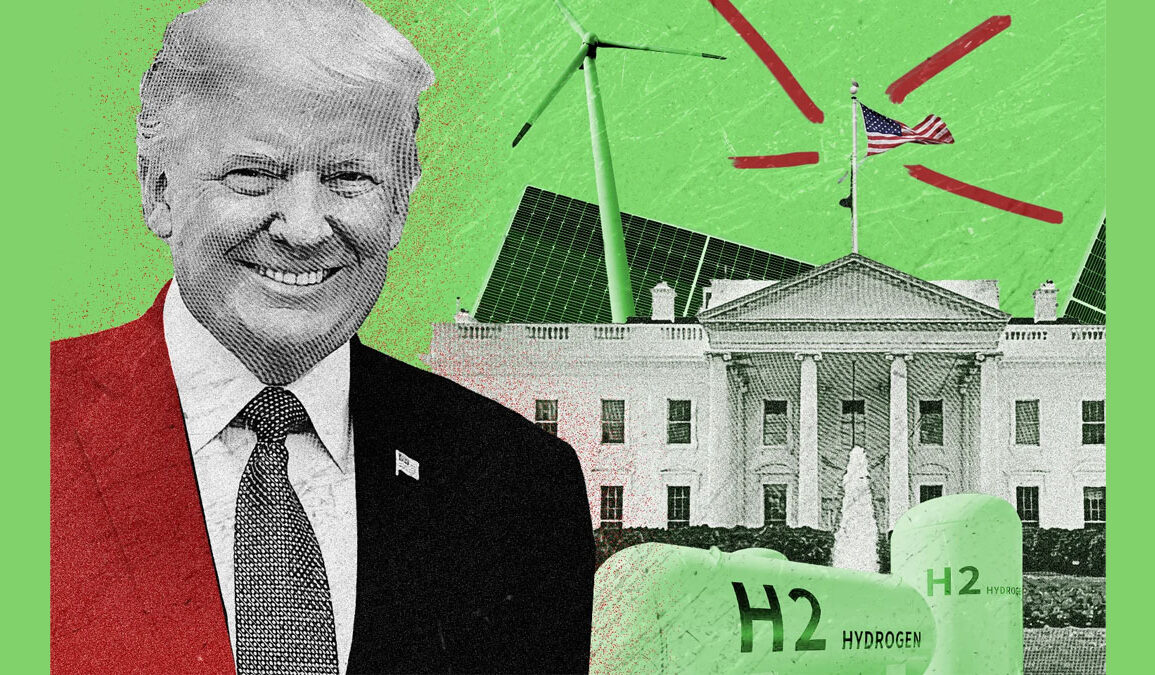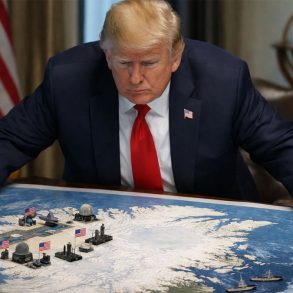As President-elect Donald Trump prepares to take office once again, the green energy sector faces a unique crossroads. Despite Trump’s vocal skepticism about climate change and criticism of renewable energy initiatives, many clean energy executives remain cautiously optimistic. Why? Because Trump, at his core, is a businessman—and businesses run on energy. Lots of it.
The Business Case for Green Energy
In the face of skyrocketing electricity demand driven by AI data centers, electric vehicles, and industrial growth, the green energy sector has shifted its messaging. No longer touting just environmental benefits, industry leaders now emphasize energy security, economic competitiveness, and job creation. As Jim Murphy, president of Invenergy, puts it, “It’s all about demand right now. If you look at the forecasts, we’re going to need everything as fast as we can get it.”
This framing aligns with Trump’s priorities: business growth, energy independence, and job creation. Green energy firms are highlighting their ability to provide reliable power, support American manufacturing, and reduce dependence on foreign energy sources—a narrative that resonates across political lines.
The reality is that demand for power in the United States is set to surge. AI data centers, electric vehicles, and a growing manufacturing base require enormous amounts of electricity. “This is not a time to choose between technologies,” said Abigail Ross Hopper, CEO of the Solar Energy Industries Association. “This is the time to expand and increase our energy dominance across the portfolio and across the world.”
The ‘All of the Above’ Energy Strategy
Central to Trump’s likely energy policy is the return of the “all of the above” strategy—an approach that promotes fossil fuels while leaving room for renewables, nuclear, and emerging technologies. This approach isn’t new; it was championed by Barack Obama and has reemerged as a Republican talking point.
Under this framework, oil and gas remain dominant, but wind, solar, and battery storage can still thrive as complementary energy sources. Trump’s nominees, like Doug Burgum for Interior Secretary and Chris Wright for Energy Secretary, embody this duality—supporting traditional energy while recognizing the value of renewables.
North Dakota, under Burgum’s leadership, saw wind power generate 36% of its electricity in 2023. Despite being an oil and coal state, North Dakota embraced wind energy without compromising its fossil fuel industries. Industry leaders hope Burgum’s pragmatic approach will continue on a national scale.
Chris Wright, Trump’s choice for Energy Secretary, is also seen as a potential bridge between fossil fuels and renewables. Wright is pro-business and understands the economic value of investing in innovative energy technologies. His company, Liberty Energy, has invested in nuclear and geothermal energy startups, signaling a willingness to diversify the energy portfolio.
Who Are the Detractors?
Despite this pragmatic outlook, critics remain. Environmental activists warn that Trump’s aggressive push for fossil fuel production could undermine global climate efforts and slow down the clean energy transition. Offshore wind projects, in particular, face significant risk, given Trump’s repeated promises to halt such initiatives.
Additionally, some in the renewable sector fear policy uncertainty. The Inflation Reduction Act (IRA), which turbocharged investment in renewables, could face partial repeal or significant scaling back. Sheldon Kimber, CEO of Intersect Power, stresses the importance of policy stability, noting, “Our government puts policy down and people invest billions of dollars based upon that policy.”
Developers have been racing against time, trying to secure investments and commence construction before the new administration takes office. Tim Urban, tax policy leader at Bracewell, explained, “Those actions can prove that construction had started, which would safeguard access to existing investment-tax credits even if projects are completed later under a less-generous tax regime.”
Trump the Businessman: A Wildcard
At the end of the day, Trump’s business instincts may be the most important factor in determining the future of green energy. History shows that even during his first term, key tax credits for wind and solar were preserved. Trump understands the value of profitable industries, and green energy is increasingly big business.
Elon Musk, the CEO of Tesla, is seen by some as a potential influencer on Trump’s renewable energy stance. Tesla’s extensive investments in grid-scale storage, home solar panels, and EV batteries present an economic case that aligns with Trump’s focus on American jobs and competitiveness.
Trump’s emphasis on energy security also creates room for renewables to flourish. “Homegrown energy—whether it’s oil, gas, wind, or solar—is always a priority,” said Kennedy Nickerson, an energy policy analyst. “It’s not just about climate; it’s about making sure the U.S. isn’t dependent on foreign imports.”
The Path Forward
While Trump’s campaign rhetoric has been dismissive of climate concerns, the reality of governing is more complex. Energy demand is rising, and renewables are now among the cheapest sources of power. Even if framed as “alternative” rather than “clean,” solar panels, wind turbines, and batteries are likely to remain essential components of America’s energy mix.
For green energy advocates, the key will be to speak Trump’s language: jobs, profits, and energy independence. If they can do that, they may find an unlikely ally in the businessman-turned-president once again.
As the country braces for Trump’s second term, one thing is clear: America’s energy future isn’t about subtraction—it’s about addition. And green energy might just be the ace up Trump’s sleeve.
NP Editor: I believe Trump will proceed to a certain extent with renewable energy subsidies, but will trim back the stupid ones (and there are many). But ultimately, Trump and I are on the same page about one thing: Why the heck are we buying energy from people who hate us?








